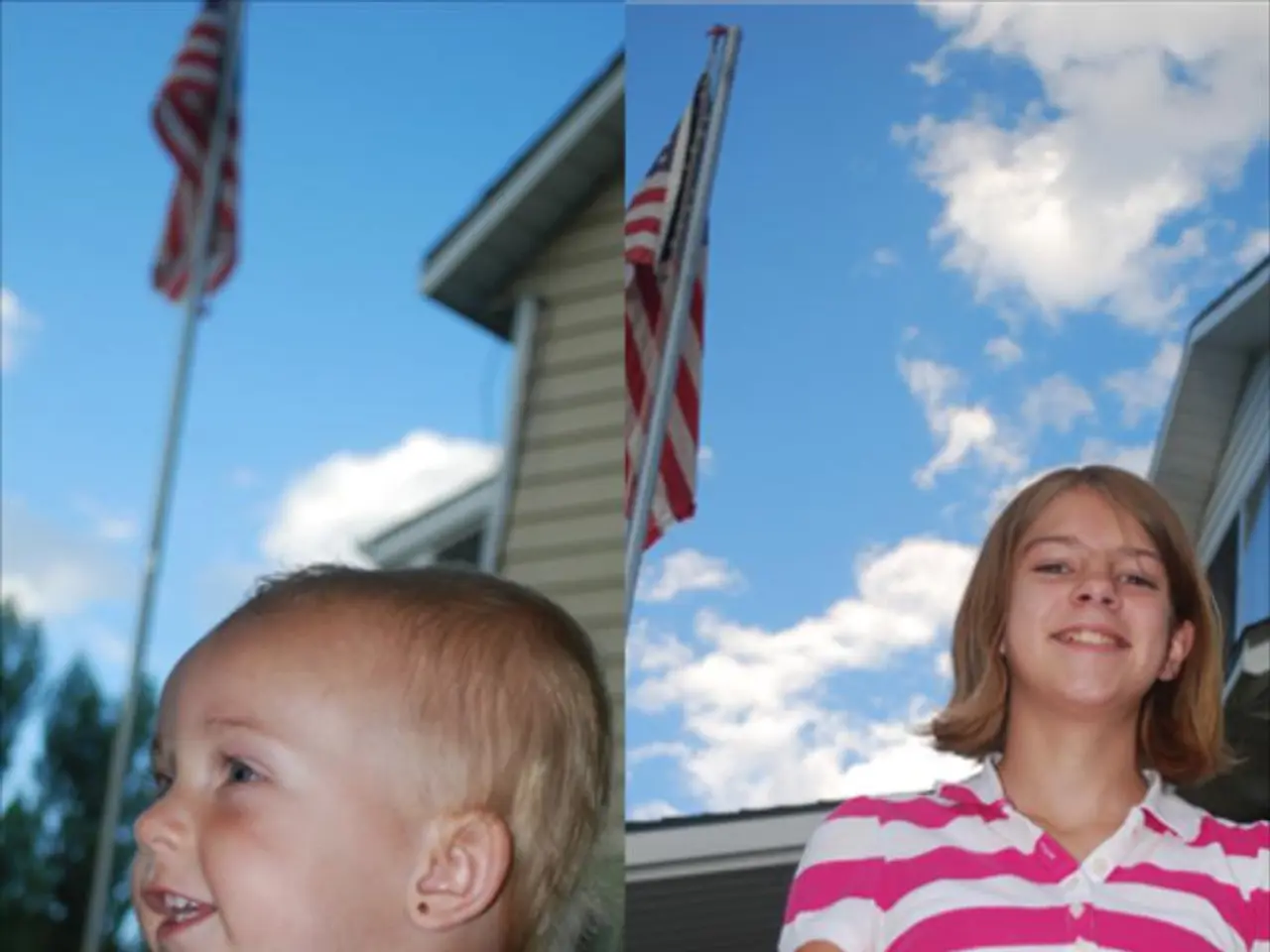Premature Wedlock and Girlhood Derailment: Examining the Influence of Premature Marriages on Young Females
==========================================================
In a small village, 15-year-old Amina's world is about to change dramatically. Amina, who dreams of becoming a teacher, playing soccer, and traveling the world, is promised in marriage to a boy she barely knows. This is a common occurrence in her community, where early marriages are deeply rooted in tradition.
Amina's mother and grandmother, like Amina, were also married young in the village. The cycle of early marriages is hard to break, as it is often passed down from generation to generation.
Early marriages often lead to girls dropping out of school due to household responsibilities. In Amina's case, her education is abruptly halted, leaving her without the ability to make informed decisions about her future.
The long-term effects of early marriages on girls are profound. Multiple studies consistently show that girls married early are much more likely to drop out of school and attain fewer years of education compared to their unmarried peers. Early marriage often interrupts or ends girls’ formal education entirely, limiting their future socioeconomic opportunities and perpetuating cycles of poverty.
Early marriage typically forces girls into adult roles and responsibilities before they are physically, emotionally, or mentally prepared. This abrupt transition limits their development of autonomy, identity, and life skills. Girls thus often forgo careers, public status, and opportunities for self-realization.
The emotional toll of early marriage is immense for Amina, causing her anxiety, stress, and potential mental health issues. Early marriage exposes girls to heightened risks of physical and emotional abuse, sexual violence, and early pregnancy, all of which negatively affect mental health and well-being. The emotional stress of coping with marital expectations, intimate partner violence, and social isolation contributes to long-term psychological trauma.
The consequences of early marriage extend beyond the individual to families and societies at large. Early marriage significantly reduces the likelihood of a girl finishing her education. This reduced educational attainment hinders personal growth and has negative impacts on emotional well-being.
Communities can help prevent early marriages by providing educational opportunities, support systems, and awareness campaigns. By advocating for girls' education and autonomy, communities can create an environment that supports girls' rights to choose their futures.
Through resilience and determination, girls can reshape their futures. Amina's journey to reclaim her dreams involved speaking up about her desire for education and a life beyond marriage. With courage, support, finding mentors, and pursuing education or career opportunities, Amina was able to reclaim her dreams and become a symbol of hope for other girls in her community.
References:
[1] UNICEF. (2020). Child marriage. Retrieved from https://www.unicef.org/child-protection/child-marriage
[2] World Health Organization. (2021). Child marriage and adolescent health. Retrieved from https://www.who.int/news-room/fact-sheets/detail/child-marriage-and-adolescent-health
[3] United Nations. (2019). End Child Marriage. Retrieved from https://www.un.org/en/campaigns/endchildmarriage/
[4] Girls Not Brides. (2021). The impact of child marriage. Retrieved from https://www.girlsnotbrides.org/child-marriage/impact/
[5] UNFPA. (2021). Ending child marriage. Retrieved from https://www.unfpa.org/issues/ending-child-marriage
- To break the cycle of early marriages in her community, Amina aims to pursue a career in education and health-and-wellness, with a focus on mental-health and women's health, in hopes of empowering the girls in her village with knowledge and self-development.
- Amina's story is a stark reminder of the long-term impact of early marriages on fitness and personal-growth, as it often robs girls of their physical, emotional, and mental preparedness, limiting their potential for a healthy and fulfilling life.
- In her journey towards reclaiming her dreams, Amina sought guidance and support from mentors in science and education-and-self-development, learning valuable skills that would ultimately help her achieve her aspirations.
- By supporting Amina's education and autonomy, her family and community demonstrated a commitment to her overall health, fostering an environment that promotes her long-term well-being and encourages the empowerment of other girls in the community.




